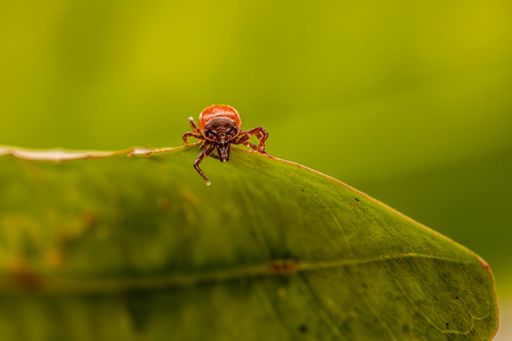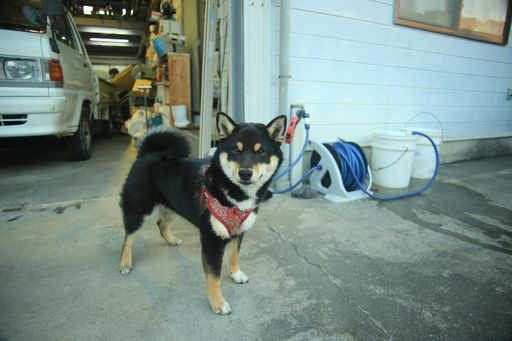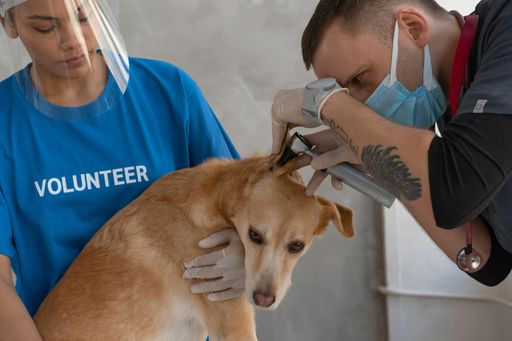Have you ever wondered if dogs can have sleep problems like people do, such as sleep apnea? It is a common condition in which a person briefly stops breathing during sleep. Could it happen to our furry friends too?
The short answer to this question is "Yes." Dogs can have sleep apnea just like humans, but the reasons are usually different because of anatomical differences between the two. In this article, you'll find out everything about canine sleep apnea including its signs, causes, and what it might mean for our furry companions.
What is Canine Sleep Apnea?
Canine sleep apnea is a sleep disorder that affects a dog's normal breathing patterns during sleep. It involves interruptions or pauses in breathing that can lead to disturbances in the sleep cycle. These pauses in breathing can be brief and may occur repeatedly throughout the night.
Several factors can contribute to canine sleep apnea, including obesity, breed-specific anatomical features, and underlying health conditions. Breeds with short noses, such as brachycephalic breeds, may be more predisposed to airway obstruction during sleep.
Symptoms of Sleep Apnea
Canine sleep apnea can be identified through various symptoms. If you witness one or more of these signs, it is highly recommended to talk to your vet ASAP. Common symptoms of sleep apnea in dogs include:
Loud Snoring: Persistent and loud snoring, especially if it is irregular or interrupted. Although there may be several causes of snoring, we cannot ignore sleep apnea.
Pauses in Breathing: Notable pauses in breathing while the dog is asleep. It is usually followed by sudden awakenings.
Restlessness: Frequent movements during sleep, restlessness, or frequent changes in sleep positions which indicate discomfort.
Gasping or Choking Sounds: Audible gasping, choking, or coughing sounds during sleep which is usually because of difficulty in breathing.
Increased Respiratory Effort: Noticeably increased effort in breathing, especially during episodes of interrupted breathing.
Excessive Daytime Sleepiness: Dogs with untreated sleep apnea may experience excessive daytime sleepiness or laziness.
It's important to note that while snoring is common in some breeds and may not necessarily indicate sleep apnea, the presence of other symptoms, especially pauses in breathing should raise concern.
Common Causes of Canine Sleep Apnea
Canine sleep apnea can have various causes. While not as extensively studied in dogs as in humans, some factors can be a cause of sleep apnea in dogs:
Obesity: Excess weight can lead to the accumulation of fatty tissues in the throat area, causing airway constriction and potentially contributing to sleep apnea.
Breed-specific anatomy: Breeds with short noses or flat faces (brachycephalic breeds), such as Bulldogs, Pugs, and Boxers, may have anatomical features that predispose them to airway obstruction during sleep.
Age: Older dogs may experience changes in muscle tone and respiratory function, which can increase the likelihood of sleep apnea.
Underlying health conditions: Certain medical conditions, such as respiratory infections, allergies, or neuromuscular disorders, may contribute to sleep apnea in dogs.
Sleep position: Some dogs may be more prone to sleep apnea depending on their sleeping position. For example, dogs that sleep on their backs may be more susceptible.
Environmental factors: Allergens or irritants in the environment, such as dust or pollen, and industrial pollution can contribute to nasal congestion and respiratory issues during sleep.
Genetics: There may be a genetic component to sleep apnea in certain breeds.
How to Treat Sleep Apnea in Dogs?
Treating canine sleep apnea typically involves addressing the underlying causes and managing the symptoms. Unfortunately, like humans, there is no CPAP Machine available for dogs. A CPAP (Continuous Positive Airway Pressure) machine is a medical device designed to treat sleep apnea and other sleep-related breathing disorders.
Here are some general approaches to consider:
Weight Management: If obesity is a contributing factor, weight loss may be recommended to reduce excess fat around the throat and airways.
Change in Sleeping Position: Encourage your dog to sleep in a position that minimizes airway obstruction. Some dogs may find relief by sleeping with their heads elevated.
Environmental Changes: Minimize exposure to environmental irritants, such as dust or allergens, that could contribute to respiratory issues.
Medical Treatment: If there's an underlying medical condition, such as respiratory infections or allergies, your veterinarian may prescribe medications to address these issues.
Surgery: In severe cases or when structural abnormalities are contributing to sleep apnea, surgical interventions may be considered. This could involve procedures to correct airway obstructions.
Lifestyle Modifications: Ensure your dog has a healthy and balanced diet. Regular exercise can also contribute to overall well-being and may be beneficial.
Always consult with a veterinarian for a proper diagnosis and treatment plan tailored to your dog's specific needs. It's crucial to address the underlying causes of canine sleep apnea and work closely with a veterinary professional to ensure the best possible outcome for your furry friend's health and well-being.
Dog Breeds Prone to Sleep Apnea
While canine sleep apnea can potentially affect dogs of any breed, there is an increased risk in certain breeds, especially those with specific anatomical features that may contribute to airway obstruction during sleep.
Breeds with short noses, known as brachycephalic breeds, are more prone to respiratory issues, including sleep apnea. Some of these breeds are Bulldog, Pug, Shih Tzu, Boxer, and Boston Terrier.
It's important to note that individual dogs within a breed may vary, and not all dogs of these breeds will necessarily experience sleep apnea. Additionally, mixed-breed dogs with brachycephalic features may also be at an increased risk.
Conclusion
In conclusion, while sleep apnea in dogs may not be as extensively studied as in humans, it is a condition that requires immediate attention, particularly in breeds prone to respiratory issues. Recognizing the signs, from loud snoring to pauses in breathing, and seeking guidance from a veterinarian are necessary steps in ensuring the well-being of your dog.
With the right care, attention to breed-specific considerations, and veterinary support, we can continue to deepen our understanding of sleep apnea in dogs and enhance the quality of their sleep and overall health.



















